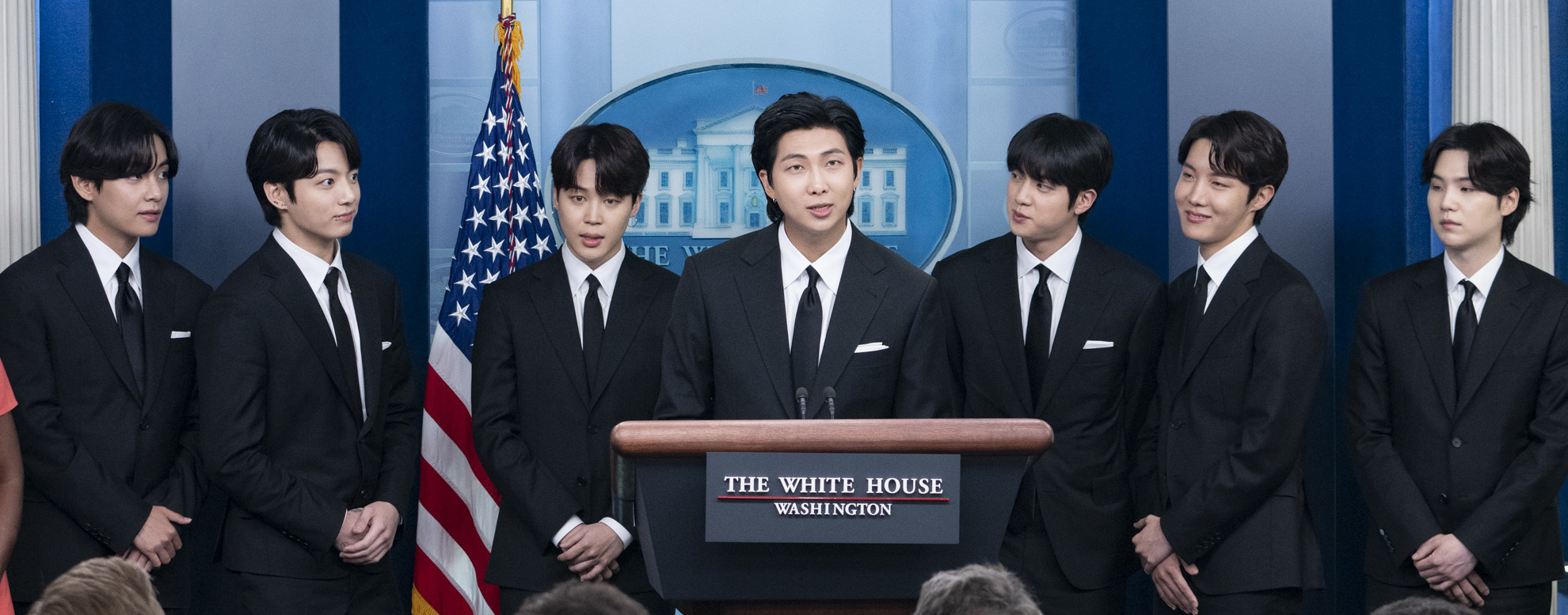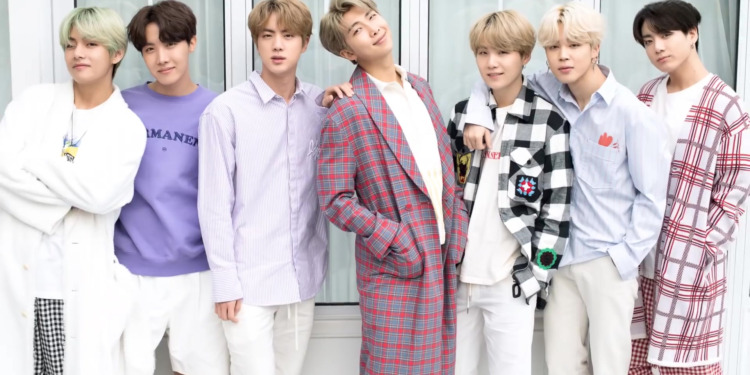Since their debut in 2013, the South Korean boy band BTS – the most-awarded group in Billboard Music Award history – have grown into an international superpower. However, the group has recently announced a break from music for just under two years to complete national military service.
In South Korea, military conscription is compulsory for all able-bodied men aged 18-35, as the country is still technically at war with self-claimed nuclear weapons state, North Korea.
BTS had previously been allowed to postpone their mandatory army conscription until the age of 30, and in June earlier this year, they announced a hiatus, saying that each member will be going solo to pursue individual projects for some time.
There have been years of debate as to whether K-Pop stars like themselves should have to enlist in the army at all, with some Olympic athletes, classical musicians and dancers having previously been granted exemption. The Korean Defence Minister also previously spoke of the possibility that the group may still be able to practise and perform together even if they join the military.
Now, as the eldest member of the group – 29 year old Jin – approaches his 30th birthday, the group have announced that all seven members of the band will begin their almost two year stint in the South Korean military.
Many are surprised at this decision, and have suggested that the members of BTS or “Bangtan Boys” – Jin, Suga, J-Hope, RM, Jimin, V, and Jungkook – could be granted exemption from South Korean national conscription, with their devoted fanbase or “Army” petitioning for the exemption.

The “Bangtan Universe”
As well as being a group of seven extremely talented musicians and pro-active philanthropic ambassadors, BTS are also estimated to contribute billions to the South Korean economy.
The news that for the next 21 months they’ll be swapping their “army” fandom for the real thing, has impacted not just their followers, but possibly the financial markets to some degree too.
As well as being successful musicians, BTS also own an impressive intellectual property asset portfolio within their trademarked “Bangtan Universe” or “BU,” owning more patents and copyrights than any other group across a spectrum of platforms, books, images, designs, comics, music videos, documentaries, mobile games and much more.
Related Articles: How the Korean “Bike to Work Challenge” Is Leveraging Technology to Tackle Climate Change | Nuclear Poker: The Players Involved with the North Korean Standoff | United Nations General Assembly Opens: What About Our Common Agenda? | Earth is Dying: UN Chief Accuses World Leaders of Zero Action
In 2018, researchers estimated BTS’ contribution to the South Korean economy to be equivalent to that of 26 mid-sized companies – over $3.6 billion a year. That same year, South Korean consumer goods exports related to the band (including clothes and cosmetics) were estimated to value $1.1 billion. In 2017, BTS were estimated to be the reason that one out of every 13 tourists visited South Korea that year. And analysts also previously estimated the band would contribute $29.4 billion to its country’s economy between 2014-2023.
After news of the band’s hiatus broke earlier this year, shares in their management company, HYBE (one of the largest entertainment agency in the Republic of Korea) dropped a quarter in value as its stock fell to its lowest in two years. After news broke of the band’s conscription, the shares fell again, by another 2.5%.
South Korea stands to lose billions as a result of BTS’ upcoming military service, Fortune reports.
“Between 2014 and 2023, analysts projected BTS would have contributed $29.1 trillion to the South Korean economy.” pic.twitter.com/0KDab0j03l
— Pop Base (@PopBase) October 17, 2022
Mille-Feuille musicians
As well as world-class musicians, economic superpowers, and ambassadors for their country, BTS are also active in the international political, philanthropic and human rights spheres, as their influence and impact transcends language, cultural and national borders.
The previous President of the Republic of Korea elected them as Special Presidential Envoys for Future Generations and Culture, inviting them to give talks at the United Nations on many occasions.
In addition to their role as Presidential Envoys, the group are also long-standing Unicef ambassadors, partnering with the Korean Committee of the non-profit to promote their “Love Myself” campaign – a support program for victims of violence.
The band have taken the podium at the UN general Assembly multiple times since 2018, giving performances and speeches about their campaign to help prevent violence against children and teens.
What’s more, in June earlier this year, the band was invited by President Biden to give a landmark briefing on Asian inclusion and ending anti-Asian hate crime in the US at the White House.
The group’s many layers of innovation, talent and entrepreneurial prowess will surely serve them well despite taking time off from performing. After their time in the military is complete, the group have announced plans to reunite in 2025 – a return to stardom that even after a couple of years break, will surely be hotly-anticipated by many.
— —
Correction: This article has been updated since publication to amend and shorten the title, subtitle, introduction and first section titled “The ‘Bangtan Universe'” to remove an unnecessary quote and clarify all points in relation to the economic value BTS bring to the South Korean economy; reorganise and shorten the conclusion; and to remove section covering the relationship between politics and K-pop to avoid any unfair assumptions.
Editor’s Note: The opinions expressed here by the authors are their own, not those of Impakter.com — In the Featured Photo: Korean boy band BTS. Featured Photo Credit: Wikimedia Commons









